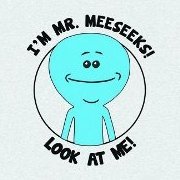Do you believe in God and why
-
Recently Browsing 0 members
- No registered users viewing this page.
-
Topics
-
-
Popular Contributors
-
-
Latest posts...
-
32
Middle East Israel’s Strikes on Iran’s Nuclear Program Is a Necessary Defense Against a Global Threat
I'm in KL at the moment and half the Middle East is here, along with Pakistan and Bangladesh. 🤢 I hope they enjoy seeing Israel dishing out a spanking to their Islamic brethren. -
1
-
35
Retirement visa extension phone call received from immigration
Checked with whom? If you paid anything, you've been sucker punched with the scam sob story. If they use an Immigration vehicle, all costs are covered. If they use their own vehicle, they get an allowance to cover costs. -
11
Trump’s former surgeon general is now one of his most pointed critics
Did you miss the something like that part? Of course you did.- 1
-

-
16
Leftist media is just fiction
When the right wins power through elections,they’re fascist, and death to the Nazi’s . When the left wins power its mostly democratic ! And god forbid the previous administration if they leaned right , Lawfare cometh . -
11
Video:Freedom of Assembly gone leftist ! This isn’t Tiananmen Square …
The lefty loonies will be responding shortly saying that there were only a few hundred isolated incidents, not really enough to matter.- 2
-

-

-
-
Popular in The Pub

.thumb.jpg.3ee24d9400fb02605ea21bc13b1bf901.jpg)



.thumb.jpeg.d2d19a66404642fd9ff62d6262fd153e.jpeg)



Recommended Posts
Create an account or sign in to comment
You need to be a member in order to leave a comment
Create an account
Sign up for a new account in our community. It's easy!
Register a new accountSign in
Already have an account? Sign in here.
Sign In Now